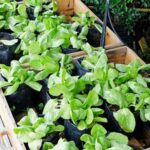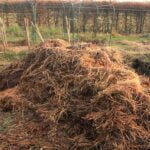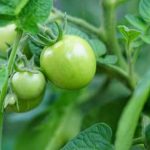Are you looking to start vegetable gardening in Alabama? Look no further. Alabama’s climate and soil conditions provide a great opportunity for growing a wide variety of vegetables. Whether you’re a beginner or an experienced gardener, this article will provide valuable insights and tips for successful vegetable gardening in Alabama.
With its diverse climate, including both humid subtropical and continental climates, Alabama offers unique challenges and opportunities for vegetable gardeners. From the southern Gulf Coast to the northern Appalachian Mountains, gardeners can find success with proper planning and preparation.
In this article, we will explore the best vegetables to grow in Alabama’s climate, the importance of soil preparation, pest and disease management, recommended techniques, seasonal planting and harvesting, watering and irrigation strategies, as well as community resources and organizations available to Alabama vegetable gardeners.
By following the recommendations in this article, you’ll be on your way to enjoying a bountiful harvest from your very own vegetable garden in Alabama. So grab your gardening tools and get ready to enjoy the rewards of growing your own produce right at home.
Best Vegetables to Grow in Alabama’s Climate
When it comes to vegetable gardening in Alabama, it is important to choose the right vegetables that can thrive in the state’s climate. Alabama has a diverse climate with hot, humid summers and mild winters, making it suitable for growing a wide variety of vegetables. Some of the best vegetables to grow in Alabama’s climate include tomatoes, peppers, squash, okra, cucumbers, green beans, and sweet potatoes.
Tomatoes are particularly well-suited for Alabama’s climate, as they require plenty of sunlight and warmth to ripen properly. Peppers also do well in Alabama’s hot weather, and there are many varieties to choose from, including bell peppers, jalapeños, and banana peppers. Squash and okra are heat-tolerant vegetables that thrive in Alabama’s long summers. Cucumbers and green beans are also good choices for Alabama gardeners because they can withstand the heat and humidity.
It is important to note that cool-season vegetables like lettuce, spinach, and carrots can also be grown in Alabama during the cooler months. These vegetables can be planted in early spring or late summer for a fall harvest. Overall, with proper care and attention to seasonal planting schedules, vegetable gardening in Alabama can be a rewarding experience.
| Vegetable | Best Time to Plant |
|---|---|
| Tomatoes | March – April |
| Peppers | April – May |
| Squash | May – June |
The Importance of Proper Soil Preparation for Vegetable Gardening in Alabama
Proper soil preparation is crucial for successful vegetable gardening in Alabama. The state’s varied climate and soil conditions require careful attention to ensure a bountiful harvest. One of the key considerations for vegetable gardening in Alabama is the acidity of the soil. Most vegetables thrive in a slightly acidic soil with a pH level of 6.0 to 6.8, so it’s essential to test the soil and make any necessary adjustments with lime or sulfur.
Another important aspect of soil preparation for vegetable gardening in Alabama is ensuring good drainage. Heavy clay soils, which are common in many parts of the state, can lead to waterlogging and root rot if not properly amended. Adding organic matter such as compost or well-rotted manure can help improve drainage and fertility, creating an optimal growing environment for vegetables.
It’s also essential to consider the nutrient levels in the soil when preparing for vegetable gardening in Alabama. Conducting a soil test can provide valuable information about the levels of essential nutrients like nitrogen, phosphorus, and potassium. Based on the results, gardeners can then apply fertilizers or organic amendments to address any deficiencies and ensure that their vegetables have access to the nutrients they need for healthy growth.
| Aspect | Consideration |
|---|---|
| Acidity | pH level of 6.0 to 6.8 |
| Drainage | Heavy clay soils and amendments |
| Nutrients | Fertilizers or organic amendments based on soil test results |
Tips for Successful Pest and Disease Management in Alabama’s Vegetable Gardens
When it comes to vegetable gardening in Alabama, dealing with pests and diseases is a common challenge that many gardeners face. However, with the right strategies and practices, it is possible to manage these issues effectively and protect your precious crops.
Here are some tips for successful pest and disease management in Alabama’s vegetable gardens:
1. Identify Common Pests and Diseases: Familiarize yourself with the typical pests and diseases that affect vegetable gardening in Alabama. Common pests include aphids, beetles, caterpillars, and mites, while diseases such as powdery mildew, blight, and root rot can also be problematic.
2. Implement Natural Pest Control Methods: Consider using natural methods to control pests in your vegetable garden, such as introducing beneficial insects like ladybugs or lacewings, using organic insecticidal soaps, or employing companion planting techniques to deter harmful insects.
3. Practice Good Garden Hygiene: Regularly remove any dead or diseased plant material from your garden beds to prevent the spread of diseases. Clean gardening tools regularly to avoid spreading fungal spores or other pathogens.
4. Rotate Crops: Rotation of crops is essential in minimizing the build-up of pests and diseases in the soil. Plan your planting schedule carefully to ensure that you rotate crops effectively each season.
By implementing these pest and disease management tips for vegetable gardening in Alabama, you can protect your plants from harm and enjoy a bountiful harvest of healthy vegetables throughout the growing season.
Recommended Vegetable Gardening Techniques for Alabama
When it comes to vegetable gardening in Alabama, it’s essential to utilize the right techniques to ensure a successful harvest. The state’s unique climate and soil conditions require specific approaches to gardening that can differ from other regions. Here are some recommended vegetable gardening techniques for Alabama:
- Raised Bed Gardening: Due to the heavy clay soil commonly found in Alabama, raised bed gardening can be an effective technique. By creating raised beds filled with well-draining soil, you can improve root health and overall plant growth.
- Vertical Gardening: In smaller spaces, vertical gardening can maximize the use of limited area. Utilizing trellises or vertical planters for vining crops like tomatoes, cucumbers, and beans can help save space and increase yields.
- Crop Rotation: Implementing a crop rotation plan is important for maintaining soil fertility and preventing disease buildup. By rotating different types of vegetables in designated areas over several years, you can reduce the risk of pest infestations and soil depletion.
In addition to these techniques, implementing organic gardening practices such as composting, mulching, and using natural fertilizers can contribute to healthier plants and better-tasting vegetables. These methods not only benefit the garden but also promote sustainability and environmental stewardship.
Whether you’re a novice or seasoned gardener, embracing these recommended techniques for vegetable gardening in Alabama can lead to a bountiful and rewarding harvest. Experiment with different methods to find what works best for your specific growing conditions and enjoy the process of nurturing your own homegrown produce.
A Guide to Seasonal Planting and Harvesting in Alabama
Planting and harvesting your vegetables at the right time is crucial for a successful vegetable gardening in Alabama. Alabama’s climate can vary greatly from season to season, so it’s important to be mindful of what to plant and when to plant it.
Spring Planting
In Alabama, spring is a great time to start planting cool-season vegetables such as lettuce, spinach, carrots, broccoli, and cauliflower. It’s also the perfect time to plant warm-season crops like tomatoes, peppers, squash, and cucumbers. Be sure to check the last frost date for your area before planting these warm-season vegetables.
Summer Planting
As the temperatures rise in Alabama, it’s best to focus on heat-tolerant vegetables for summer planting. This includes okra, sweet potatoes, southern peas, and watermelon. Be mindful of watering these crops regularly due to the increase in temperatures during the summer months.
Fall Planting
Fall is another excellent growing season for vegetable gardening in Alabama. This is the time to plant cool-season crops such as kale, collard greens, Brussels sprouts, and turnips. Fall is also a good time to sow cover crops or plant winter-hardy vegetables like onions and garlic.
Winter Harvesting
Alabama’s mild winter climate allows for some winter harvesting of cold-hardy crops such as kale, lettuce, carrots, and radishes. By using protective measures such as row covers or low tunnels, you can extend your harvest into the winter months.
By following these seasonal guidelines for planting and harvesting your vegetable garden in Alabama, you can maximize your yields and enjoy a bountiful harvest throughout the year.
The Role of Watering and Irrigation in Alabama Vegetable Gardening
Watering and irrigation are essential components of successful vegetable gardening in Alabama. The state’s climate, characterized by hot and humid summers, creates unique challenges for maintaining adequate soil moisture levels. Without proper watering and irrigation practices, vegetable plants may suffer from stress, wilt, and decreased productivity. Therefore, it is important for Alabama gardeners to understand the role of watering and irrigation in their vegetable gardens.
Understanding the Water Needs of Vegetable Plants
Different types of vegetables have varying water requirements. For example, leafy greens such as lettuce and spinach typically need more frequent watering compared to root vegetables like carrots and beets. Understanding the specific water needs of each type of vegetable is crucial for ensuring optimal growth and yields. Alabama gardeners should take into account factors such as plant maturity, weather conditions, and soil moisture retention when determining the appropriate amount of water for their vegetable garden.
Choosing the Right Irrigation Methods
In addition to regular watering, implementing efficient irrigation methods can help conserve water while ensuring that plants receive adequate hydration. Drip irrigation systems are particularly beneficial for Alabama vegetable gardening, as they deliver water directly to the root zone, minimizing evaporation and reducing weed growth. Likewise, soaker hoses can be used to effectively target the base of plants without wetting foliage, which can lead to disease issues in humid climates.
Managing Watering Schedule and Soil Moisture
Developing a consistent watering schedule is key to promoting healthy plant growth in Alabama’s variable climate. Gardeners should monitor soil moisture levels regularly using a moisture meter or by simply observing the condition of the soil. It is important to water deeply but less frequently to encourage deep root development rather than shallow roots near the surface. Implementing mulching techniques can also help retain soil moisture by reducing evaporation and suppressing weed growth.
By understanding the importance of proper watering and irrigation techniques in vegetable gardening in Alabama, gardeners can take proactive steps to ensure successful crop production while efficiently managing water resources in their gardens.
Community Resources and Organizations for Alabama Vegetable Gardeners
Vegetable gardening in Alabama can be a rewarding and fulfilling experience, but it can also come with its challenges. That’s why it’s important for gardeners to seek out community resources and organizations that can provide support, knowledge, and guidance. Luckily, Alabama is home to several groups and resources dedicated to helping vegetable gardeners succeed.
One such organization is the Alabama Cooperative Extension System (ACES), which offers a wealth of information on vegetable gardening in Alabama. From soil testing and preparation to pest management and crop selection, ACES provides valuable resources to help gardeners make the most of their efforts. Additionally, many county extension offices offer Master Gardener programs, where individuals can receive specialized training in horticulture and share their knowledge with the community.
Another valuable resource for vegetable gardeners in Alabama is the Alabama Farmers Federation. This organization provides access to local farmer’s markets, as well as information on sustainable farming practices and agricultural education. By connecting with the federation, gardeners can not only access fresh produce but also tap into a network of experienced growers who are willing to share their expertise.
Furthermore, joining a local gardening club or community organization can be highly beneficial for vegetable gardeners in Alabama. These groups often organize workshops, seed exchanges, and plant sales, providing an opportunity for members to learn from one another and connect with like-minded individuals.
Whether you’re a beginner or a seasoned gardener, participating in these groups can enhance your vegetable gardening experience while fostering a sense of community within the state. With these resources and organizations at their disposal, vegetable gardeners in Alabama can connect with others who share their passion while learning valuable tips and techniques for successful gardening in this unique climate.
Conclusion
In conclusion, vegetable gardening in Alabama can be a rewarding and fruitful endeavor for both experienced and novice gardeners. The state’s climate provides an excellent environment for growing a wide variety of vegetables, offering the opportunity to enjoy fresh produce year-round. By following the recommended techniques for soil preparation, pest management, watering, and seasonal planting, gardeners can experience the satisfaction of cultivating their own delicious and nutritious crops.
One of the most rewarding aspects of vegetable gardening in Alabama is the ability to enjoy a bountiful harvest of homegrown produce. From juicy tomatoes to crisp cucumbers and sweet bell peppers, there is nothing quite like the taste of freshly picked vegetables from your own garden. Additionally, the sense of pride and accomplishment that comes from nurturing plants from seed to harvest is truly fulfilling.
Furthermore, becoming involved in community resources and organizations for vegetable gardening in Alabama can provide valuable support, knowledge-sharing opportunities, and a sense of camaraderie with fellow gardeners. Whether through local gardening clubs, farmers’ markets, or educational workshops, connecting with others who share a passion for vegetable gardening can add another layer of enjoyment to this enriching hobby.
With its numerous benefits and rewards, vegetable gardening in Alabama is undoubtedly a worthwhile pursuit for anyone with a green thumb or a desire to cultivate their own fresh produce.
Frequently Asked Questions
What Vegetables Can You Grow in Alabama?
In Alabama, you can grow a variety of vegetables such as tomatoes, peppers, sweet potatoes, okra, squash, cucumbers, and different types of beans. The climate in Alabama is conducive to growing these crops successfully.
Can You Garden Year Round in Alabama?
Yes, you can garden year-round in Alabama. Due to the mild winters in the southern part of the state and the relatively short winters in the northern part, it is possible to continue gardening throughout the year. However, winter gardening may require some adjustments due to temperature fluctuations.
What Month Should I Plant My Vegetable Garden?
The best month to plant your vegetable garden in Alabama depends on the specific vegetables you want to grow. Generally, cool-season vegetables like lettuce and carrots can be planted as early as February or March, while warm-season vegetables such as tomatoes and peppers are typically planted in April or May when the danger of frost has passed.
It’s important to consider both the average last spring frost date and each crop’s specific planting recommendations for a successful vegetable garden in Alabama.

If you’re looking to get into vegetable gardening, or are just looking for some tips on how to make your current garden better, then you’ve come to the right place! My name is Ethel and I have been gardening for years. In this blog, I’m going to share with you some of my best tips on how to create a successful vegetable garden.





